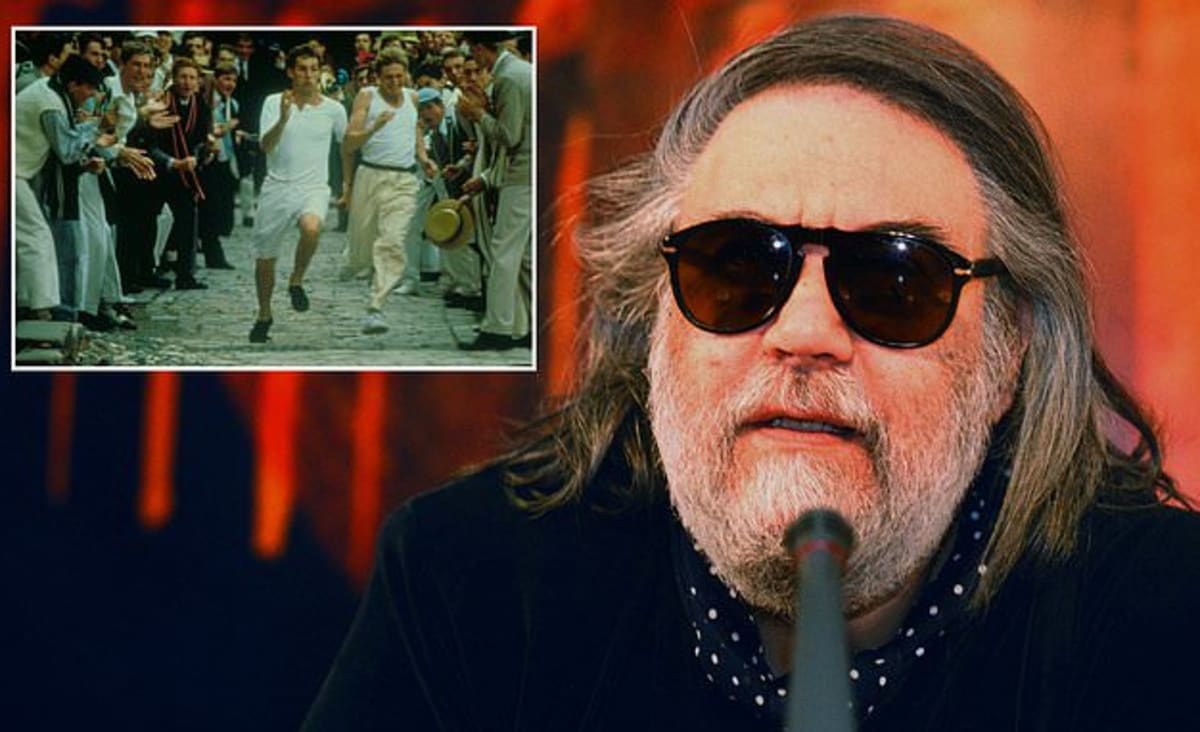
www.dailymail.co.uk
Vangelis, the Greek composer of Chariots of Fire's music, dies aged 79
The legendary film starring Ben Cross, Ian Charleson, Nigel Havers, and Cheryl Campbell
Culture & Entertainment
Vangelis, the legendary Greece-born electronic composer and musician who was best known for his electronic theme song for Oscar-winning 'Chariots of Fire', has died at the age of 79.
According to the Athens News Agency, Vangelis, born Evangelos Odysseas Papathanassiou, died on Wednesday 18 May, his lawyers' office said, but gave no cause of death.
Greek media reported that Vangelis died in a French hospital.
He played in several bands and solo, but his huge breakthrough came with the score for Chariots Of Fire, a 1981 film that told the story of two British runners in the 1920s.
Vangelis's score received one of the four Academy Awards the film won.
The signature piece is one of the hardest-to-forget film tunes worldwide - and has also served as the musical background to endless slow-motion parodies.
Greece's Prime Minister Kyriakos Mitsotakis and other government officials expressed their condolences Thursday. 'Vangelis Papathanassiou is no longer among us,' Mitsotakis tweeted.
Born on 29 March, 1943, near the city of Volos in central Greece, Vangelis started playing the piano at age 4, although he got no formal training and claimed he never learned to read notes.
The young Vangelis developed an early interest in music and experiments with sounds produced by banging pots and pans or fixing nails, glasses and other objects to the strings of his parents' piano.
He absorbed the tones of Greek folk songs and Orthodox Christian choral music, but he had no formal musical training, which he later said had helped save his sense of creativity.
After a start with local rock bands, Vangelis left for Paris at the age of 25, joining an exodus of young artists following a 1967 coup which installed a military junta in Greece.
As he found his feet away from home, he was attracted by the then-new field of electronic synthesizers which allowed him to create the lush melodic colours that became his trademark sound.
Despite enjoying success in the European 'prog rock' scene of the early 1970s, he was uncomfortable with the expectations on a commercial performing artist and largely retreated to the recording studio he created for himself in London.
It was there that he wrote the score for 'Chariots of Fire', the story of the triumph of a group of British runners at the 1924 Olympic Games.
Unashamedly non-contemporary, its pulsating synthesizer beats and soaring melody made the slow motion opening sequence of a group of athletes running along a beach a model for the way the cinema portrayed sport.
Vangelis once said the score, which earned him an Academy Award and topped the charts for weeks, was in part a tribute to his father, who had been a keen amateur runner. But he was also slightly dismissive of the enormous popularity it enjoyed.
'It's only another piece of music,' he told an interviewer.
The success of 'Chariots of Fire' overshadowed his other scores but he wrote the music for a number of major films including 'Missing', directed by his compatriot Costa-Gavras, and Ridley Scott's futuristic thriller 'Blade Runner'.
He was a prolific composer over many decades, his work ranging from advertising music and film scores to elaborate symphonic-style compositions and 'Jon and Vangelis', his duo with Jon Anderson, lead singer of the prog rock group Yes.
But he remained wary of commercial success, once telling an interviewer he never saw music as just an entertainment.
























































